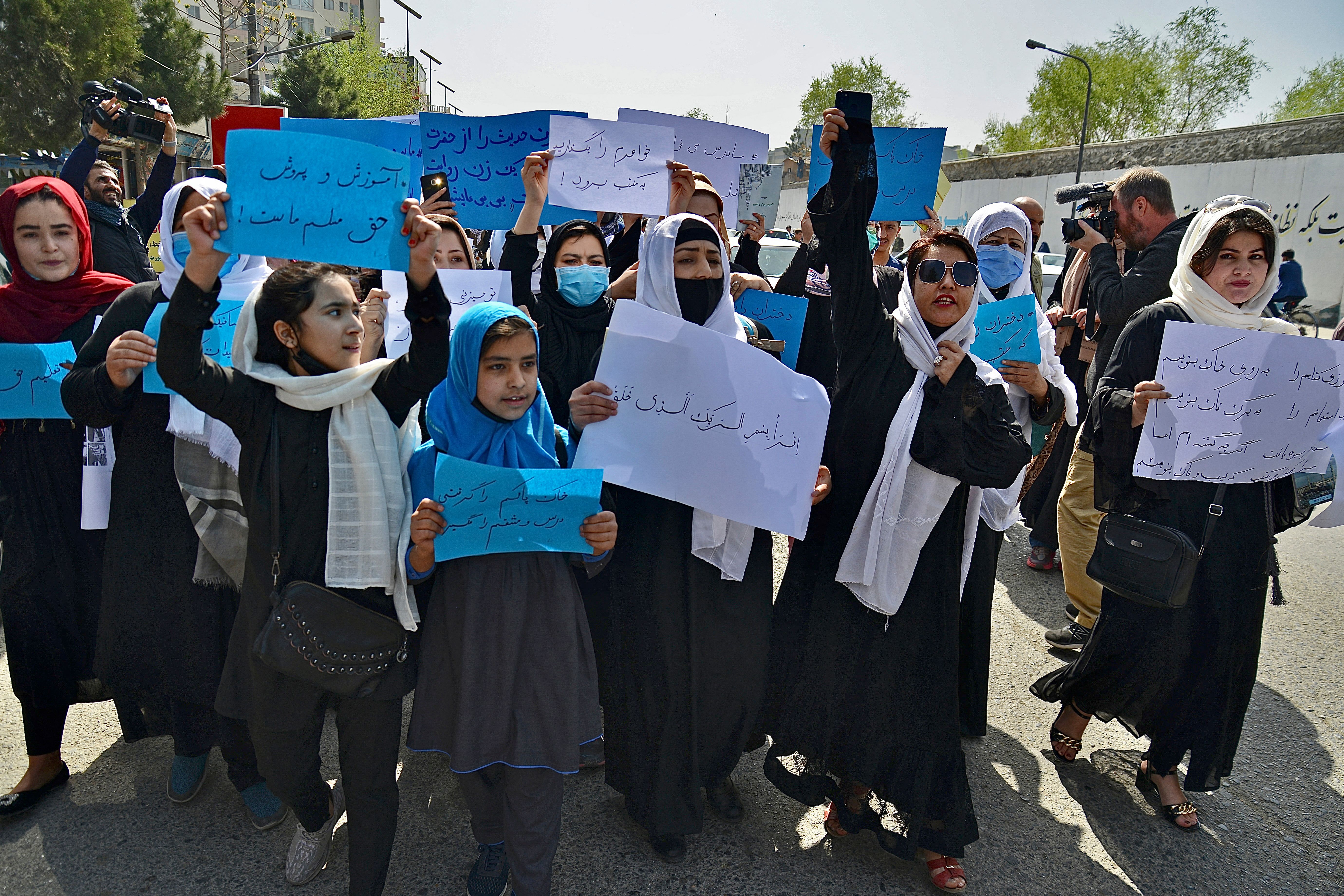The UK government should set up a parallel Homes for Afghans plan
Editorial: Why is the Ukrainian approach in Britain not being taken to genuine refugees from other conflicts?

It is a question that should haunt a nation: if so many people are willing and generous enough to open their own homes to Ukrainian refugees, and with official encouragement, why is the same approach not being taken to genuine refugees from other wars, conflicts and violence?
Indeed, the fact the Homes for Ukraine scheme might set a precedent for refugees from other war zones may have been one reason why the package of support has been so long in coming, why gaining eligibility was bureaucratic and demanding, and why the scheme was eventually taken away from the hostile custody of the Home Office.
Even as things stand now, charities complain the scheme remains too inaccessible; the relevant sponsorship form had not been translated into Ukrainian until Thursday, while refugees have also struggled with the requirement to convert forms into PDF format.
The Refugee Council is one of 16 charities and anti-trafficking organisations to have written to levelling up secretary Michael Gove – now in charge of the Ukraine scheme – warning the sponsorship scheme remains open to abuse and risks becoming “Tinder for sex traffickers”.
Still, the Ukraine scheme is in place, it is working and it represents the best traditions of Britain. Yet the uncomfortable corollary remains: why are genuine Ukrainian refugees the sole beneficiaries of a bespoke scheme, and those from other well-documented wars and violence – such as Afghanistan, Syria, Somalia and the Sahel – have no such path to safety? Why do they have to apply for visas or take their chances on dinghies in the English Channel? The obvious answer is too shameful for the authorities to dwell upon.
But not others.
A coalition of civic society think tanks and refugee support groups led by More in Common and British Future are publishing a Homes for Afghans action plan and a joint open letter to Michael Gove MP. The challenge is, once again, to do the right thing, and at least extend the Homes for Ukraine scheme and allow the British public to help the thousands of Afghans who escaped Kabul and are still in hotel accommodation seven months later.
As with the war in Ukraine, the suffering of the Afghan people has provoked widespread sympathy, charitable donations and an urge to do something. When the British and their allies retreated from Kabul last autumn there was a sense of abandonment, even betrayal of those that had personally risked their lives to help British forces and agencies.
Of course not everyone is in a position to assist with a spare room, or indeed is sympathetic to the cause; but many are, and they have no officially sanctioned way of turning their goodwill and generosity into a firm offer of a roof over someone’s head and a safe place to sleep.
There is an Afghan resettlement scheme in place, but it is not as connected to the public as the Ukraine scheme, and it too, is facing its own problems.
To keep up to speed with all the latest opinions and comment, sign up to our free weekly Voices Dispatches newsletter by clicking here
To help redress the disparity in esteem between Ukrainians and Afghans, and to hasten the resettlement of Afghans, the government should set up a parallel Homes for Afghans plan. Though there will some who would refuse all migrants, even those fleeing war, the fair-minded British people and their political representatives would support such a move.
In recent months, and paradoxically since the Brexit referendum and labour shortages after Brexit itself, there has been an increasing realisation of the general benefits of migration, and a more open welcome for refugees and asylum seekers.
The deaths of refugees in the Channel and the Mediterranean has underlined just how desperate and fearful they are, and how much they cherish the dream of sanctuary in Britain, a land of freedom and opportunity for those who wish to work hard and get on.
Afghans are no different to Ukrainians in their hopes and aspirations for themselves and their families – and the same goes for Somalians or Malians for that matter. They need help; people want to help them; the government’s role is obvious.
The Independent has a proud history of campaigning for the rights of the most vulnerable, and we first ran our Refugees Welcome campaign during the war in Syria in 2015. Now, as we renew our campaign and launch this petition in the wake of the unfolding Ukrainian crisis, we are calling on the government to go further and faster to ensure help is delivered. To find out more about our Refugees Welcome campaign, click here. To sign the petition click here. If you would like to donate then please click here for our GoFundMe page






Join our commenting forum
Join thought-provoking conversations, follow other Independent readers and see their replies
Comments